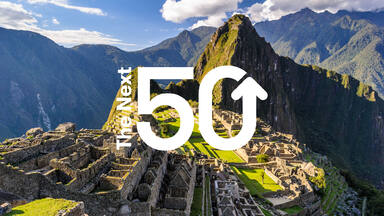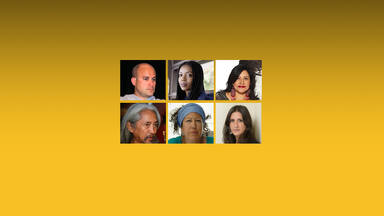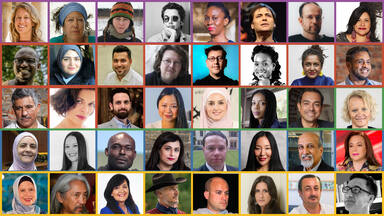Rita Keegan
Archivist and multimedia artist
Laura Yawanawa
Mixteca-Zapoteca activist, President of the Yawanawá Sociocultural Association (ASCY)
Vision for the Next 50
In the Next 50… The cultural values and spirit of ‘women of colour’ are respected and celebrated through the rediscovery of their artwork and documentation, all of which contribute to establishing their cultural links and protecting their heritage.
In the Next 50… The culture and heritage of indigenous communities are not obliterated by colonialism and the influence of the West but are successfully transmitted to new generations. Indigenous knowledge and its contribution to economic profits are protected by law.
Summary
The dialogue between Rita Keegan and Laura Yawanawa was centred on the cultural and economic protection of people from underrepresented regions. They pointed out that the cultural values and knowledge of minority groups were exploited and endangered by the dominant culture and colonialism. It is vital, they agreed, to protect these groups’ knowledge and its contribution to economic growth, but suggested different ways to ensure protection. Keegan cited ‘respect and ownership’ as a starting point, as problems stem from disrespect of different cultural traditions and creativity. She added that the role of archivists such as herself is crucial to record and recognize the cultural values of women of African descent. Yawanawa recommended instead introducing a law to ensure adequate compensation for the use of indigenous art and design to protect livehoods. She also explained how indigenous people work with their oral stories to transmit their heritage inspired by nature and the spiritual world.
Dialogue
Watch the dialogue
Explore other sessions
Five dialogue sessions covering five themes take place in 2022, each joined by thinkers in paired dialogue from diverse regions. The interdisciplinary dialogues inspire new visions for the next 50 years of World Heritage.



